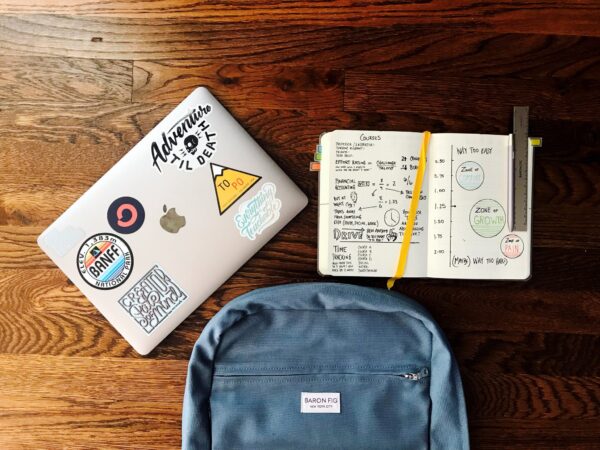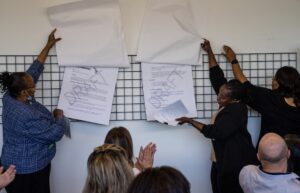Labor Day is a week away which means the school season is just around the corner. School—whether middle school, high school, community college, or university—can be extremely stressful and filled to the brim with what feels like way too much information. Though good studying techniques don’t promise to make the semester easy by any means, they do offer a better chance at learning and progressing in class. If you’re feeling worried about the upcoming semester, or if you’re trying to get all of the study tips and tricks you can for a successful school year, this It List is for you!
TAKE QUALITY NOTES
Most of us have seen Pinterest photos of aesthetically highlighted notes, color-coordinated with coffee mugs and pens—but beautiful doesn’t always mean good. According to Columbia College, some of the best ways to take good and beneficial notes have little to do with highlighters. One of the most impacting ways to improve note-taking is to jot down a professor’s main or central idea versus the exact words they use. Paraphrasing an idea into your own words helps to solidify the topic in your mind, is easier to review later, and makes for shorter and less dense notes.
Another suggestion per Columbia College is to review notes as soon as possible after a lecture. That way you can flesh out the topics you covered in lecture and make greater connections with what you have already learned in past lectures.
MAKE STUDY PLANS & STICK TO THEM
Another helpful trick is to plan time to study. Block that time out on your calendar, and stick to it. Attend that “event” just as you would a Justin Timberlake concert. A great way to do this is to plan out your week in advance so your study times don’t sneak up on you or catch you halfway through a different project. It is also helpful to set reminders on your calendar to make sure you don’t forget your predetermined schedule.

STUDY SMARTER; PHOTO SOUNDTRAP / UNSPLASH
QUIZ YOURSELF & BEFRIEND YOUR PHONE’S TIMER
According to the Department of Psychology at UC San Diego, the best study methods include short and frequent study times and practice tests. To familiarize yourself with short study times, an excellent method is the Pomodoro Method—25 minute study sessions, with five to 10 minute breaks between each one. Check out this Pomodoro timer which may prove less distracting than setting one on your phone.
As for practice tests, the UC San Diego Department of Psychology suggests this as a better way of studying than reviewing notes because it puts a student in the frame of mind they will be in during an exam. Quizzing oneself, either with Quizlet flashcards or self-made tests, is a great way to familiarize yourself with the content but with the act of test-taking as well.
MAKE TIME TO WORK OUT
This tip may be one of the hardest on the list, but it is definitely one of the most beneficial for mental health and clarity. In a book titled “Spark: The Revolutionary New Science of Exercise and the Brain”, author John J. Ratey delves into how and why physical movement and exercise create a more positive and learning-ready environment for the brain. The Youtube channel Crash Course explains the subject in detail in their episode “Exercise: Crash Course Study Skills #10”.
UTILIZE ALL LEARNING STYLES & MEMORY TECHNIQUES
The utilization of all learning styles, including verbal, visual, auditory, and kinesthetic (or physical) is a great help in studying. Maybe for your first self-made quiz, have a friend test you verbally, for the second, read it out loud to yourself as you take it, and so on. This will enable different parts of your brain to interact with the material, creating a larger net to catch and hold onto information.
Memory techniques are also an incredible tool in studying. These can include the use of acronyms—for example, the colors of the rainbow: Red, Orange, Yellow, Green, Blue, Indigo, Violet, or ROY G BIV. Association is another helpful memory technique. The act of associating and attaching new information to already learned information can aid in a sort of spider web of connections throughout one’s mind. This can include relating it to a movie you watched last week, or even to your birthdate or age.
GIVE YOUR MIND (AND BODY) TIME TO REST
Just as exercise is important, so is time to rest. This means completely setting down your work and taking a fully unplugged-from-school break. No flashcards while you watch TV, no Quizlet tests while you eat lunch, and no reviewing lecture notes while you take a bath. Drawing firm boundaries with yourself between studying and resting will be beneficial in both more quality rest time, but also more quality study time.
As always, be sure to subscribe to our newsletter for regular updates on all things Detroit and more.






















